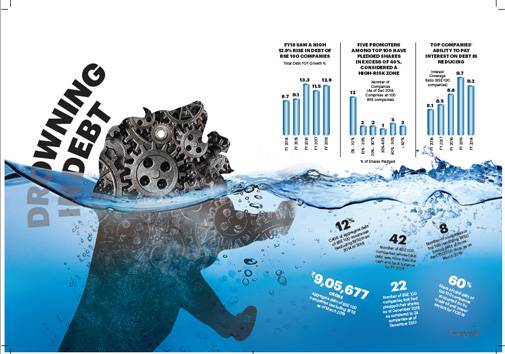Losing a job can terrible for anyone, but it’s even worse if you’re drowning in debt. If you unexpectedly find yourself unemployed, your finances will likely take a devastating hit. Overnight, your ability to pay your debts and provide for your family each month will be severely limited or completely shattered. You will probably experience a great deal of stress, frustration, and despair over not knowing how to pay your bills, and you may think that you have run out of options. However, this is not the case, there is still a lot you can do.
If you are among the millions of people who lost their jobs due to the aftermath of the recent COVID-19 pandemic, you must take control of the situation before you get caught in an economic downward spiral. Here are 6 things you should do to stay afloat after losing your job.
Feeling like you’re sinking into debt can be maddening, and it can have severe side effects on your mental and physical health. So, if you feel that debt is ruining your life, bankruptcy may be just what you need. To learn more about it, you should consult with a bankruptcy lawyer in Los Angeles CA to get the professional advice you need. Most bankruptcy attorneys, such as KT Bankruptcy Lawyer, offer free initial consultations, so don’t hesitate to contact them at any time.
Apply for unemployment
Depending on your previous employment, and how you left your job, you may qualify for unemployment benefits. These benefits can help alleviate some of the financial hardship you are experiencing. After all, you worked hard for the company that ended up laying you off, and these types of situations are why unemployment insurance exists.
Calculate your savings
During this challenging time, you should know exactly how much money you have so that you can plan out your expenses accordingly. This is the time to use the money you have in savings accounts and to sell the stocks you have invested in. You must make sure you have all your savings on hand to survive the difficulties ahead.
Create a budget and stick to it
After becoming unemployed, one of the first things you should do immediately if you want to navigate this difficult time properly is to create a budget that reflects your new financial situation. In doing so, you’ll want to divide payments into two categories; mandatory payments, such as food, rent, children’s school and other things you can’t do without; and optional payments, such as recreational activities, car payments, life insurance, all those expenses that can be temporarily halted or eliminated without immediate consequences.
Prioritize your expenses
After working out how much money you will allocate to your essential expenses, it will be time to determine how to deal with the debts that are weighing you down. In this case, you should divide your debts into secured and unsecured debts.
Loans such as credit cards and personal loans are classified as unsecured debts, but mortgages and auto loans are secured debts. You should prioritize making payments on secured debts because if you fail to meet these payments, you could lose the asset linked to the debt. On the other hand, unsecured debts can be eliminated through processes such as bankruptcy, but if possible, you should always make the minimum payments so as not to damage your credit score.
Consider Bankruptcy
If your debts are too overwhelming, you may want to consider filing bankruptcy to get rid of most of them once and for all. Many believe that bankruptcy is an utterly negative process, but the truth is that it is nothing more than a legal alternative to get a fresh financial start.
After losing your job, bankruptcy provides you with two options to get rid of your debts, Chapter 7 and Chapter 13. Chapter 7 bankruptcy allows low-income debtors to obtain a discharge of most of their unsecured debts so they can rebuild their finances from scratch. Being unemployed, chances are this is the ideal option for you. However, if you have some secondary income, you could turn to Chapter 13 bankruptcy to get debt relief without having to sell any of your assets.
If you want to know which bankruptcy chapter is best for your case, you should talk to a bankruptcy attorney near you who can analyze your financial situation and advise you on how to proceed.
Find a new job
At the end of the day, the best way to get back on your feet after losing your job is to find another job. Continue to look for new employment options. Talk to friends and colleagues in your field, and if traditional methods don’t work, use digital tools like LinkedIn to find employers who are looking for people who match your professional profile. Don’t give up, rest assured that the best is yet to come!
